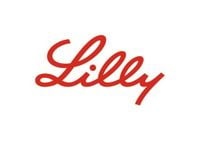Eli Lilly and Company has announced promising results for its new diabetes and weight-loss pill, orforglipron, which demonstrated significant efficacy in lowering blood sugar levels and promoting weight loss in patients with Type 2 diabetes. This announcement, made on April 17, 2025, marks a significant milestone for the pharmaceutical giant, especially as it comes on the heels of Pfizer's recent abandonment of its own oral weight-loss drug due to concerning side effects.
The experimental pill, orforglipron, belongs to the GLP-1 drug class, which includes well-known injectable treatments like Ozempic, Wegovy, and Mounjaro. Unlike these injectables, orforglipron is administered as a daily pill, making it a potentially more accessible option for patients. Dr. Dan Skovronsky, Lilly's chief scientific officer, emphasized the innovation behind orforglipron, stating, "Everybody knows GLP-1s now, and they’re sort of famous as injectable peptide drugs, but we’ve engineered this now into a new kind of molecule that can be taken as a pill form."
In a phase 3 clinical trial, orforglipron lowered A1C levels—an important measure of blood sugar—by an average of 1.6% after 40 weeks compared to a placebo. More than 65% of participants taking the drug achieved A1C readings of 6.5% or less, a threshold for diabetes management. Additionally, those receiving the highest dose of orforglipron lost up to 16 pounds, or 7.9% of their body weight, during the study period.
The results of this trial are particularly noteworthy as they align closely with the efficacy seen in injectable GLP-1 drugs. Dr. Christopher McGowan, a gastroenterologist who runs a weight loss clinic in North Carolina, described the findings as "very encouraging," noting that the reduction in A1C is comparable to injectable therapies, though slightly less than dual agonists like Mounjaro.
Lilly's announcement comes at a time when the market for obesity treatments is projected to explode, with estimates suggesting it could reach $150 billion in the coming years. This potential for growth is underscored by the fact that Lilly plans to file for approval with global regulators for orforglipron as a weight loss treatment by the end of 2025, with a subsequent application for diabetes treatment in 2026.
The excitement surrounding orforglipron is also fueled by its safety profile. Unlike Pfizer's recently discontinued drug, which faced scrutiny over potential liver damage, Lilly reported no such safety signals in its trial. The side effects experienced by participants, such as nausea and diarrhea, were consistent with those associated with other GLP-1 medications. Specifically, between 13% and 18% of patients reported nausea, while 19% to 26% experienced diarrhea.
In addition to its promising clinical results, orforglipron's development timeline is noteworthy. The drug was developed in just six years, which is 30% to 40% faster than typical timelines for similar medications in the industry. This rapid pace is a testament to Lilly's commitment to innovation and efficiency under the leadership of CEO David Ricks, who has emphasized the importance of speed and collaboration within the company.
Ricks, who has been at the helm of Lilly since 2017, has overseen a remarkable transformation of the company, which has seen its market capitalization soar to nearly $700 billion. Under his leadership, Lilly has not only focused on developing new drugs but also on making them more accessible to patients. In 2024, Lilly launched Lilly Direct, becoming the first pharmaceutical company to offer its products directly to consumers, significantly reducing costs for those without insurance.
About 100,000 people currently purchase Zepbound, Lilly's existing weight-loss injectable, through Lilly Direct each month. This initiative reflects a growing trend in the pharmaceutical industry towards direct-to-consumer sales, which could reshape how patients access medications.
Orforglipron's potential extends beyond diabetes and weight loss. Lilly is also investigating its effectiveness in treating other conditions, including hypertension. Dr. Skovronsky noted, "We can think about its use in disease beyond Type 2 diabetes and obesity, where patients typically want an oral medicine." This versatility could further enhance orforglipron's appeal and marketability.
The implications of orforglipron's success are vast, not only for Lilly but for the healthcare landscape as a whole. If approved, it could provide a more convenient and effective option for managing obesity and diabetes, addressing a significant public health challenge. The ability to take a pill rather than an injection may lower barriers for many patients, making it easier for them to adhere to treatment regimens.
As the pharmaceutical industry continues to evolve, orforglipron represents a potential turning point in how diabetes and obesity are treated. With its promising results, Lilly is well-positioned to lead the charge in developing innovative therapies that could change lives.
Looking ahead, Lilly's commitment to expanding its manufacturing capabilities is also noteworthy. The company has invested nearly $50 billion since 2020 to establish new facilities in the U.S., ensuring that it can meet the anticipated demand for orforglipron and other groundbreaking therapies. Ricks has stated that he expects all GLP-1-based drugs for the U.S. market to be manufactured domestically within five years, further solidifying Lilly's role as a leader in the pharmaceutical sector.
As the company prepares for the upcoming regulatory submissions, all eyes will be on Lilly and orforglipron. With the potential to reshape treatment paradigms and improve patient outcomes, this new oral medication could be a game changer in the fight against diabetes and obesity.






